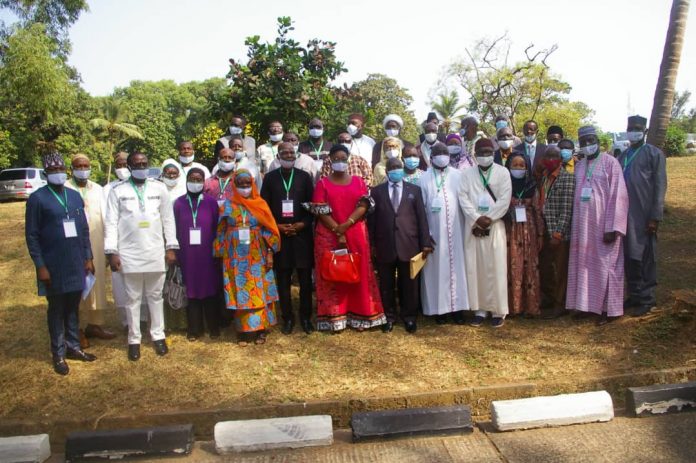By Edward Vamboi
Towards raising awareness against the deleterious effects of Money Laundering and Terrorist Financing (ML/TF) in the region, Inter-Governmental Action Group against Money Laundering in West Africa (GIABA) will collaborate and partner with the media, as a massive construction arm in that context.
Consequently, GIABA organized a 2-day National Sensitization Seminar for Religious Leaders and Institutions on Implementing AML/CFT Measures. The seminar commenced in Freetown on the 9th February 2021 at the Radisson Blu Hotel and will end today the 10th February 2021.
The seminar’s objective was to raise the awareness level of religious leaders on their role on AML/CFT framework, especially the mandate of GIABA; and (ii) agree on actionable points to promote peaceful co-existence in particular and in general AML/CFT efforts.
The fight against money laundering and terrorist financing is a collective responsibility of all stakeholders. It is an effort towards protecting the economies and financial systems from the laundering of proceeds of crime. GIABA recognises religious leaders’ valuable contribution as guardians of the faith and their institutions hold tremendous sway amongst their followers.
Fundamentally, one of GIABA’s core Strategic Goals in the 2011-2014 Strategic Plan is the promotion of strategic partnerships with the private sector, civil society, and other critical stakeholders aimed at increasing awareness of ML/TF to empower citizens to take action. Recognizing the role of religious leaders in Preventing Violent Extremism (PVE) and promoting the religious dimension of intercultural dialogue, the United Nations Secretary-General enshrined in its Plan of Action on PVE the importance for faith and community leaders to mentor “vulnerable followers to enable them to reject violent ideologies” and promote “tolerance, understanding, and reconciliation between communities.”
The involvement of religious leaders is vital in the fight against ML/TF to be legitimate as well as effective and sustainable as religious faith appeals to people on emotional levels for attitudinal changes and giving voice to the wide range of community concerns. In using persuasion as a strategy, religious leaders need to understand what specific contribution they can and have to make in overcoming the menace of ML and insurgent of TF towards transforming public understanding, attitudes, and standard-setting.
The broad themes of the seminar included the following: The Role of Religious Leaders in Preventing Money Laundering and Terrorism Financing; Money laundering and terrorist financing risks and vulnerabilities associated with religious organisations, Religious Institutions as a tool for promotion of Peaceful co-existence, Risk of terrorist abuse in non-profit organisations, Promoting Tolerance and Preventing Violent Extremism.
The training was delivered by technical experts and GIABA faculty involving presentations, case studies, group work, and sharing sessions.




